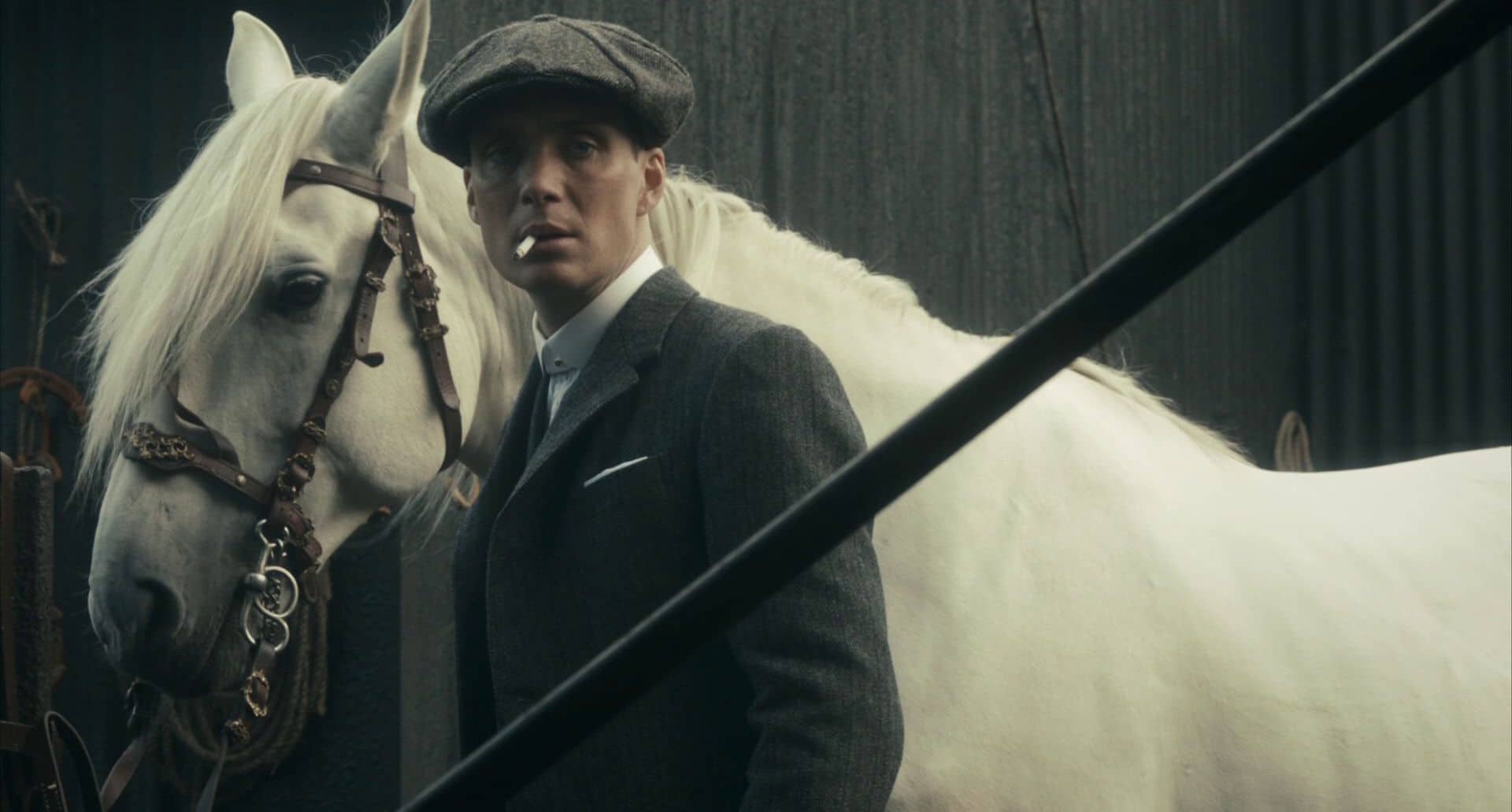
Animals, people, and default empathy settings.
We do not like watching animals suffer. Think of that (in)famous ASPCA ad with a montage of sad puppies and kittens and Sarah McLachlan’s “Angel” playing in the background—an ad with such a reputation for inspiring angst and tears that McLachlan herself admits she can’t bear to watch it (though it’s apparently raised over $30 million for the ASPCA over the years, so it gets the job done). Of course we hate to see real animals suffer—and while regulations regarding animal welfare on set are much stricter than they used to be, an exposé from The Hollywood Reporter back in November 2013 suggests there are still some concerns there (though the controversy surrounding that behind the scenes video from A Dog’s Purpose might have been blown somewhat out of proportion). That said, in modern productions made according to industry standard regulations, violence against animals is as fictional as violence against people—it is not Apocalypse Now or The Rules of the Game, it is stunts and special effects.
Of course, we do not like seeing people suffer either. But whether it is dealing with real or fictional violence, there are signs that people tend to be moved more—to horror, to disgust, to action—by crimes against certain animals than those against people. We pretty much all know at least one person who is quite vocal about their preference for animals over people, but part of the defense of that viewpoint has tended to be the idea that it is a “quirk”—that the majority of people care more about other people than animals or only care about people as opposed to animals, and animal welfare matters too, so it’s fine to be one of the few who mostly (or exclusively) worry about animal well-being. But there’s some evidence that “the few” might actually be the many—at least when you take into account a slight caveat. Because, according to a study done by two sociologists at Northeastern University, the empathy and emotional distress scale tilts as follows: baby humans > puppies > adult dogs > adult humans. They argued, according to a report in WIRED magazine, that “the critical difference in responses to the stories was based on our special concern for creatures that are innocent and defenseless.”
The most popular arguments for the concern for animals over people, fictional or otherwise, have to do with the concepts of innocence and choice, which is why human infants are exempt. Film and television are no strangers to the animal empathy card. There are numerous examples one can give, from how Francis Ford Coppola received more complaints about the severed horse’s head in The Godfather than any of the violent human murders to the fact that people hate seeing dogs die even more than they hate spoilers, leading to the existence of doesthedogdie.com, so that viewers can avoid any unexpected encounters with fictional animal death.
Thomas Shelby (Cillian Murphy) in ‘Peaky Blinders’In Peaky Blinders, cutthroat gangster and decorated WWI veteran Thomas Shelby (Cillian Murphy) says of his time in the various battlefields of France, “I got used to seeing men die. Never got used to seeing horses die.” He’s not voicing a universal sentiment, by any means, but it echoes far and wide—in film, in television, in real life. The most recent example to catch my eye was a particular kind of reaction to the recent Game of Thrones episode “The Spoils of War”—most prominently voiced in this IndieWire piece, but also quite noticeably reiterated across social media—that the most empathetic figures in the battle in which Daenerys and her dragons decimate Lannister forces with assistance from the Dothraki horde were the horses. Especially one particular horse, ridden by Bronn (Jerome Flynn), who gets a foreleg sliced off mid-battle in a graphic cutaway shot Liz Shannon Miller of IndieWire calls “perhaps the most brutal thing we’ve seen from the show in Season 7.” It was also the only shot to inspire an audible reaction from my uncle (hint: it was a four letter word), a notorious shh-the-show’s-on-be-quiet type.
Though the mutilation is undeniably brutal, it’s nowhere Game of Thrones has not gone before. Back in Season 1, Gregor Clegane earned his monster status not so much through tales of his abuse of his brother or his misdeeds during Robert’s Rebellion as his rage-induced slaughter of his own horse after losing a tilt against Loras Tyrell. (If you haven’t gone back and seen Season 1 in a while and had managed to delete that image from your brain… yeah, sorry about that).
The moment we realized just how awful Gregor Clegane wasAnd if you fast forward a little to Season 3, how big of a gap is there between how the show depicts the chopped forelimb of Bronn’s horse and the loss of Jaime’s hand? The similarity as far as graphicness is concerned is enough that a difference in response is a reaction to the who of the situation as opposed to the what or how it’s being shown. But Game of Thrones seems to realize this. Graphic horse mutilation is up there with child-killing—it’s one of those cards Game of Thrones plays that most other shows won’t, but that even Game of Thrones is cautious about over-use.
If it seems like horses were getting an even worse deal than in earlier battles, it is worth considering that the Dothraki, being horse lords who take a generally equine-centric view of life, would likely take a more equine-centric approach in their attacks as well. Besides, Bronn has to be (quickly) de-horsed without being seriously wounded or incapacitated himself for the rest of the battle scene to work. While I do not think the horse violence was intended to serve as a distraction, I think it became one for many viewers, as it turned horses into the most sympathetic participants. One thing that makes the battle at the end of “The Spoils of War” unique is how it pits fan favorites against each other, pulling and tangling viewers’ allegiances until their feelings are more tangled than a drunken Gordian knot—unless, of course, they are more concerned for the horses than the characters they have known for seven seasons.
One of the most powerful things that great storytelling can do is get us to understand and empathize with characters whom we normally would not. The logic of horses do not get a choice about going to war, they are innocent and therefore deserve sympathy, screw the soldiers—the same logic that leads the majority of test subjects in the Northeastern University study to sympathize with an abused puppy or grown dog over an abused adult human—seems to be a common, though not universal, default setting.
I have long considered great storytelling as something capable of reprogramming, or at the very least adjusting, this way of thinking through giving us characters who are relatable and empathetic in spite of doing awful things or making less-than-stellar life choices. And even though the characters may be fictional, such changes in attitude and approach easily carry over into how we deal with the real world. I could give personal anecdotes to this end or point towards recent studies that suggest the same thing.
However, there does seem to be a caveat; one exposed by reactions to “The Spoils of War,” and taken advantage of by films like War Horse and more recently The Zookeeper’s Wife, films of an attitude that human tragedies of mind-blowing proportions are more affecting with an added dose of animal cruelty. It appears that the empathy great storytelling fosters for flawed, complex human characters still struggle to equal that bestowed upon horses or dogs (though not cats, for whatever reason).
“I got used to seeing men die. Never got used to seeing horses die,” Thomas Shelby says in Peaky Blinders. And when it comes to films and television and who gets our empathy, his words are far more relevant than they were likely ever intended to be.
Related Topics: Game of Thrones, Steven Spielberg

